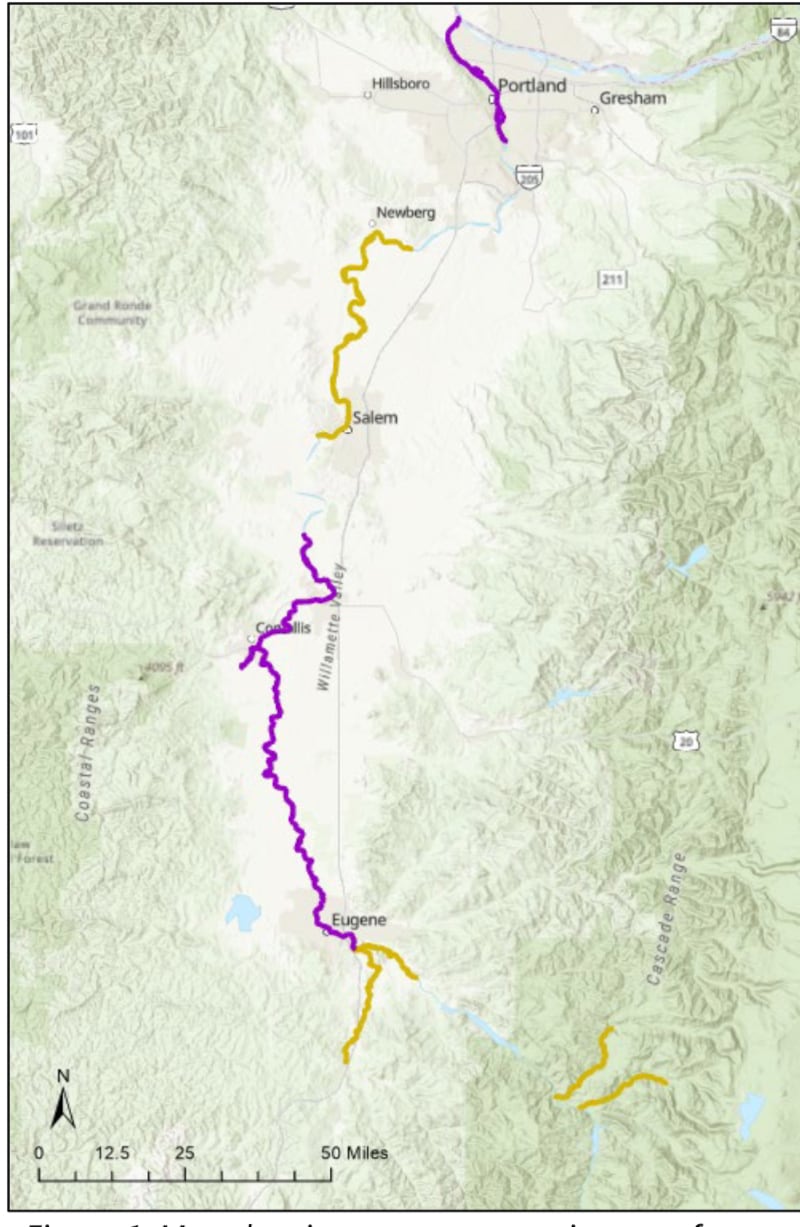The cumulative effect of trash washing into the Willamette River has earned the state’s signature waterway an ignominious distinction: The Oregon Department of Environmental Quality proposes to make it just the third body of water in the nation to be regulated under the federal Clean Water Act because of its trash content. (The other two are the Los Angeles River in California and the Potomac in Maryland.)
Oregon Public Broadcasting first reported the proposed listing.
Every two years, the state agency reviews water quality to see whether excessive levels of pollutants are present. Historically, state agencies look for chemicals, industrial byproducts, sewage, bacteria and substances that might damage water quality or make the water too warm.
But over the past five years, the environmental nonprofit Willamette Riverkeeper has gathered evidence, as its supporters paddled the river and engaged in regular cleanups, that the level of trash in the Willamette was reaching unacceptable levels.
Riverkeeper executive director Travis Williams says many of the cleanups have involved hauling away debris left behind by homeless camps.
“We see stuff that’s bagged up and left behind, and when the water rises, it washes downstream,” Williams says. “In our cleanups, we’ve found fuel canisters, tents full of garbage, buckets of human waste—pretty much anything you can imagine.”
0 of 11
Riverkeeper presented information about its findings over five years to DEQ so the agency could use it to document the problem. In its draft response, the agency identified stretches of the Willamette in Portland and between Eugene and Corvallis that are chronically trash-strewn (shown in purple on the map below).

“We are not trying to be punitive or blame homeless folks,” Williams says. “But It’s been our experience that when there’s a lot of trash, municipalities and agencies will point fingers at each other and nothing gets done.”
The benefit of the proposed listing, Williams says, is that it would give DEQ a tool to prod the owners of river uplands to be more responsive. As an example, he cites the land adjacent to the Holgate Channel east of Ross Island in central Portland. The city of Portland, Metro and the Oregon Department of State Lands all own property there, and it’s attractive turf for unsanctioned tents.
“If we end up with a lot of people camping and they leave a lot of trash, under a listing, the landowner would have to prevent the camping or clean it up,” Williams says.
DEQ will now hold a public comment period on the proposed listing from April 18 to June 17. The agency’s report may be found here.











